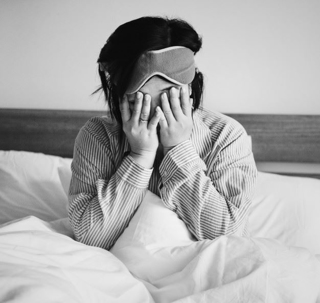Disorderly conduct (also called "disturbing the peace") is a crime that usually involves some kind of offensive or disruptive public activity. Criminal statutes in some states include public intoxication as one kind of behavior that can be considered disorderly conduct. In other states, public intoxication is a separate criminal offense, while in still other jurisdictions the criminal codes might include a crime called "drunk and disorderly" conduct. This article discusses disorderly conduct and public intoxication crimes, whatever they might be called where you live.
It's worth noting that alcohol is often a factor in the commission of many other crimes not discussed here. Estimates are that alcohol or drug abuse plays a significant role in the commission of at least a third of all serious crimes, including domestic violence and many assault crimes. Other crimes where alcohol is a key factor include DUI or DWI and minor in possession or underage drinking offenses.
What is Disorderly Conduct?
Disorderly conduct laws allow police officers to arrest people whose public behavior is disruptive or offensive or whose actions interfere with other people's enjoyment of public spaces -- often because of the offender's use of alcohol or drugs. But remember that in many states, a criminal charge of disorderly conduct does not require the offender's use of alcohol. Any kind of disruptive conduct -- including loitering, fighting, being unreasonably noisy, and otherwise disturbing the peace -- can fall under the definition of disorderly conduct depending on how the crime is defined in the state's criminal statutes.
Disorderly Conduct State Law Example: California
To get an idea of some of the kind of behavior that might be covered under disorderly conduct statutes, check out this excerpt from California's Penal Code
647. Every person who commits any of the following acts is guilty of disorderly conduct, a misdemeanor:
a) Who solicits anyone to engage in or who engages in lewd or dissolute conduct in any public place or in any place open to the public or exposed to public view.
b) Who solicits or who agrees to engage in or who engages in any act of prostitution...
c) Who accosts other persons in any public place or in any place open to the public for the purpose of begging or soliciting alms.
d) Who loiters in or about any toilet open to the public for the purpose of engaging in or soliciting any lewd or lascivious or any unlawful act.
e) Who lodges in any building, structure, vehicle, or place, whether public or private, without the permission of the owner or person entitled to the possession or in control of it.
f) Who is found in any public place under the influence of intoxicating liquor, any drug, controlled substance, toluene, or any combination of any intoxicating liquor, drug, controlled substance, or toluene, in a condition that he or she is unable to exercise care for his or her own safety or the safety of others, or by reason of his or her being under the influence of intoxicating liquor, any drug, controlled substance, toluene, or any combination of any intoxicating liquor, drug, or toluene, interferes with or obstructs or prevents the free use of any street, sidewalk, or another public way.
Learn more
To get more information on disorderly conduct and public intoxication as well as information for other public nuisance-related crimes, see Public Nuisance Penalties, Laws, and Sentencing.
Public Intoxication Laws
Most (not all) states have laws that make it a crime to be intoxicated in public (whether due to alcohol consumption, drug use, or both), although some state laws require some kind of accompanying disruptive public behavior (similar to disorderly conduct). In states where there is no specific public intoxication law on the books, law enforcement officers may have the discretion to detain people who are intoxicated to a debilitating level and let them sleep it off in a local jail cell.
Public intoxication laws are meant to protect the safety of someone who is intoxicated, and more generally protect society's interest in the unobstructed and safe use of sidewalks, parks, shopping malls, restaurants and virtually any space outside one's home that is open to the public.
Case Example: Public Intoxication
After attending a raucous bachelorette party in a club, Jenny walks outside and tries to hail a passing cab. Signs that Jenny has been drinking are obvious -- she smells of alcohol, her eyes are bloodshot, and her speech is slurred and unusually loud. Yet she remains standing on the sidewalk while waiting for a cab and does not interfere with other passersby. Jenny is probably not guilty of public intoxication.
Public Intoxication State Law Examples
Indiana: Public intoxication is a class B misdemeanor, punishable by up to 180 days in jail, and a $1,000 dollar fine. Police offers can take a suspect to jail or transport a suspect to his or her home.
Kansas: People on a public thoroughfare whose blood alcohol content exceeds .08% are guilty of a misdemeanor.
Punishment for Disorderly Conduct and Public Intoxication
In most states, disorderly conduct and public intoxication are considered misdemeanors, and are punishable by fines, alcohol education programs, community service, probation, and jail sentencing of less than one year of incarceration -- although any jail sentence that's handed down is usually much shorter, and in many cases incarceration can be avoided altogether

